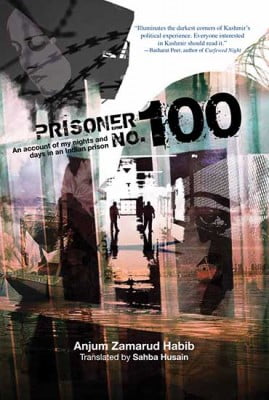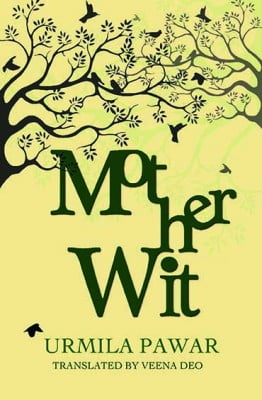No products in the cart.
Return To ShopIt’s September, with the days of perpetual rain behind us, and we are back with a round-up of recent reads and feminist news:
In the wake of Mahmood Farooqui’s conviction for rape, the internet has been rife with conversation about the 2013 amendments to rape laws in the IPC. The piece on Kafila which started it all, written by J. Devika and Nivedita Menon, explains why the conviction is a landmark verdict in the history of rape cases in India. Both the case and the article have led to several responses including this one by Manisha Sethi, this article in The Bangalore Mirror, and this interview with Flavia Agnes by Natasha Bhardwaj. Manisha Sethi argues that the evidence was not clinching enough to prove an assault without reasonable doubt. Dushyant, in The Bangalore Mirror, goes on to place those who accept the verdict as lying on the extreme end of a spectrum, the other end of which is held by self-proclaimed Men’s Rights Activists. Flavia Agnes says in her interview that forced oral sex is different from brutal gang-rape. All of these pieces shake their textual heads sadly over the ‘harsh’ punishment faced by Farooqui, a talented and popular man. On the other side, Shyamolie Singh’s response to the Flavia Agnes interview takes apart the arguments raised one by one, arguing that it shouldn’t be difficult to understand that a lack of consent forms the core of a sexual assault case regardless of the grade of violence inflicted.
On a related note, Brock Turner, the Stanford rape accused, is out after serving only half of his six-month sentence to continue the bright shiny future he was being kept from. For those who forget, Brock Turner was arrested after he was found raping an unconscious woman behind a dumpster near a frat house on campus. He was given a minimal sentence by the judge (a Stanford alumnus himself) because of a lack of previous offences and his ‘potential-filled’ future. In response to the lenient sentence, California passed a bill requiring mandatory prison time for raping an unconscious person. Emily McCarty explains how mandatory minimums disproportionately affect minority communities, while this satirical essay in The Guardian compares the Stanford sexual assault case to a white privilege cake with vanilla frosting on top.
Indian ministers, as always, have found ways to decide what’s best for women — Indian as well as foreign. Rajnath Singh has said that because of ‘social realities’, the law will continue to protect sex within marriage even when the woman is below 18 years of age. Section 375 of the IPC says that sexual activity with a girl below 18 years of age counts as rape except in the case where a girl above 15 years of age is married to the man. The Union Minister for Tourism and Culture Mahesh Sharma has advised foreign tourists visiting India to not wear skirts or venture out late at night for their own safety because “Indian culture is different from Western [culture].” Last year he had also said that “night outs for girls were not a part of Indian culture” and that he would defend India from “encroachment by western culture.” Here’s a Sanitary Panels strip on this.
(As far as sartorial recommendations for women are concerned, there’s no lack of them even in the West from which Mahesh Sharma wants to defend Indian culture. The mayors of many coastal resort-towns in France imposed a ban on the burkini, a full body swimsuit worn by Muslim women. The country’s highest administrative court has since then lifted the restrictions, saying the ban cannot be justified as there is no risk of disruption to public order. Musab Younis in the LRB (London Review of Books) blog writes about the history of France’s obsession with what Muslim women wear and how it is about nothing more than racism, pure and simple.)
Some men in India have been more generous than others. The Bombay High Court allowed women access to the inner sanctum of the Haji Ali Dargah. This article in The Indian Express will answers all your questions about this move. In response to the court’s decision, some women started the ReadyToWait campaign to discourage the judiciary from meddling in their personal relationship with Ayyapa of Sabarimala temple in Kerala. The temple does not allow women between the ages of 10 and 50 access to the core where the idol is placed. According to these women, the law should not interfere with what is written in the shastras. Here’s a response by Priya Menon where she writes that those who are willing to wait should not stop others who are not.
Sushma Swaraj has joined the bandwagon of politicians ‘protecting’ Indian culture by saying, “We do not recognize live-in and homosexual relationships… this is against our ethos” while unveiling a draft law to ban commercial surrogacy. The surrogacy bill, approved by the cabinet to be introduced in Parliament, limits access to surrogacy to couples who have been married for five years at least. Also, only a close relative can offer to be a surrogate. The bill excludes single people, unmarried couples, and homosexual couples. Members of SAMA, a resource group for women and health, offer a detailed analysis of the bill. They highlight the need to pay attention to genuine issues regarding health and compensation faced by surrogate mothers rather than moral policing of parenthood.
Last Friday the radiologists of Indian Radiological Imaging Association (IRIA) went on strike to protest against the Pre-natal Diagnostic Technique Act, which criminalises sex determination of the foetus through ultrasound. Women’s Rights activists organised a press conference where they denounced the protest on the grounds of widespread female foeticide. The protests are supposedly in reaction to the recent conviction of doctors for illegal sex determination in Maharashtra and Haryana.
Coming back to the issue of institutionalised misogyny, St Aloysius college of Mangalore is trending online after an ex-student blogged about a new list of irrational rules outlining a code of behaviour for the female students of the college. The rules forbid interaction with the opposite sex but places the onus on girls. The rules were communicated to them in a closed-doors meeting only for female students. Girls are barred from re-arranging their hair in front of boys and from going outside the campus for lunch among a host of other things. Here’s a blog post by Rashmi Shetty, another alumna of the college, digging up memories of the rampant sexism faced by the female students. Despite severe criticisms on social media, the college administration has defended the new rules.
The best of intentions without proper understanding can sometimes do more harm than good. Chetan Bhagat’s new book is his self-proclaimed attempt at feminism. In an interview for Livemint he betrays his superficial understanding of the term and his lack of research. He goes on to say “it’s not such a complex issue also.” Shinjini Bose in her article for Scroll says:
[Bhagat] is implying that we should be so grateful that a best-selling author of his stature is giving “publicity” to the cause that we should go along with whatever shape he twists it into. Bhagat understands the influence he has as a writer, and seems to feel a sense of responsibility about his role in public conversations. It’s a pity that he chooses to ignore his own limitations and explain them away rather than deal with them in any thoughtful manner.
If you’re in Delhi this month, come to the Zubaan Mela for excellent discounts on all of our amazing books! From the 24th of September to the 1st of October, 10 AM to 8 PM daily at our office – for more details, take a look at our event page.





 The Hour Past Midnight by Salma, translated from Tamil by Lakshmi Holmstrom
The Hour Past Midnight by Salma, translated from Tamil by Lakshmi Holmstrom



